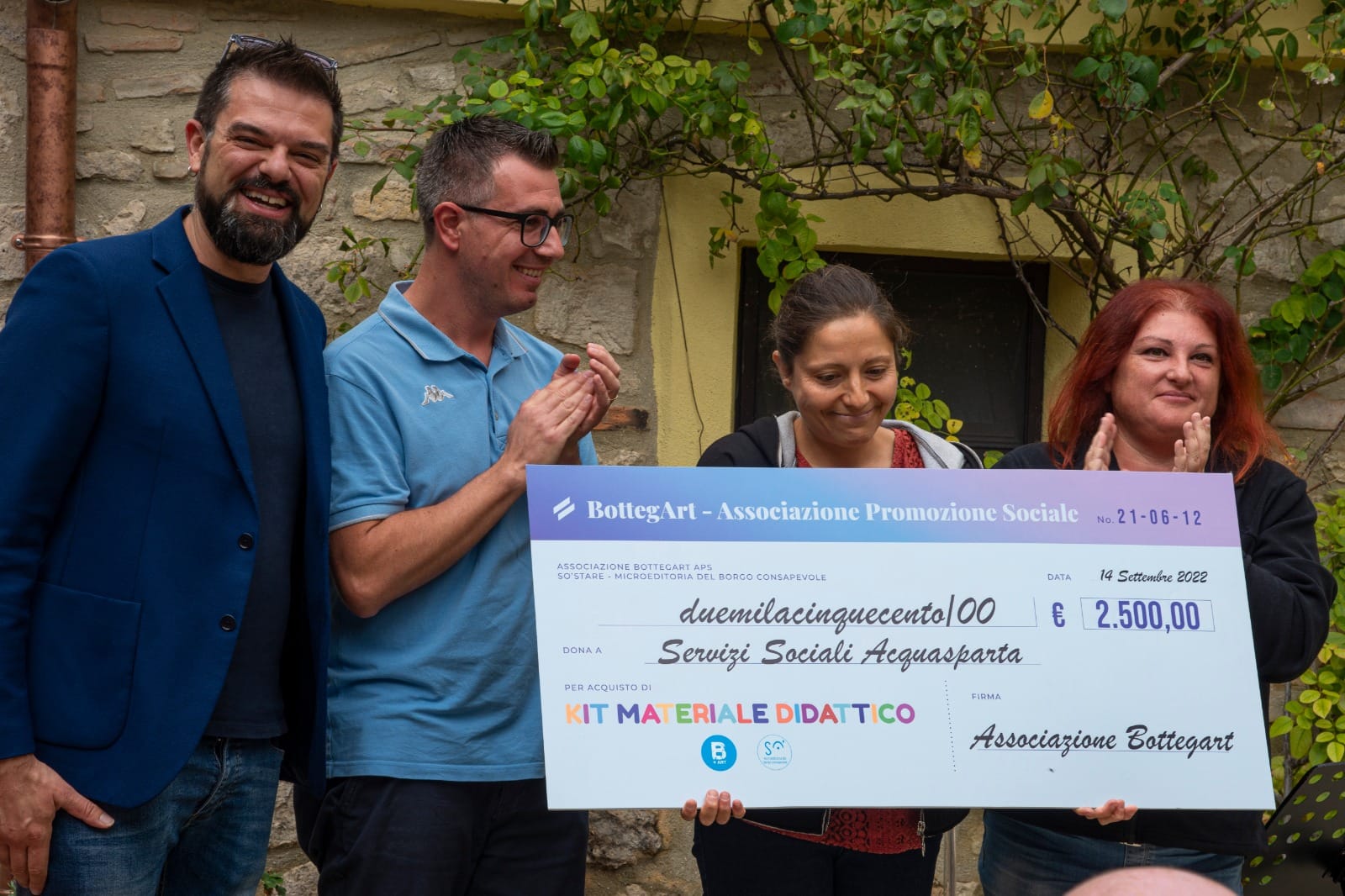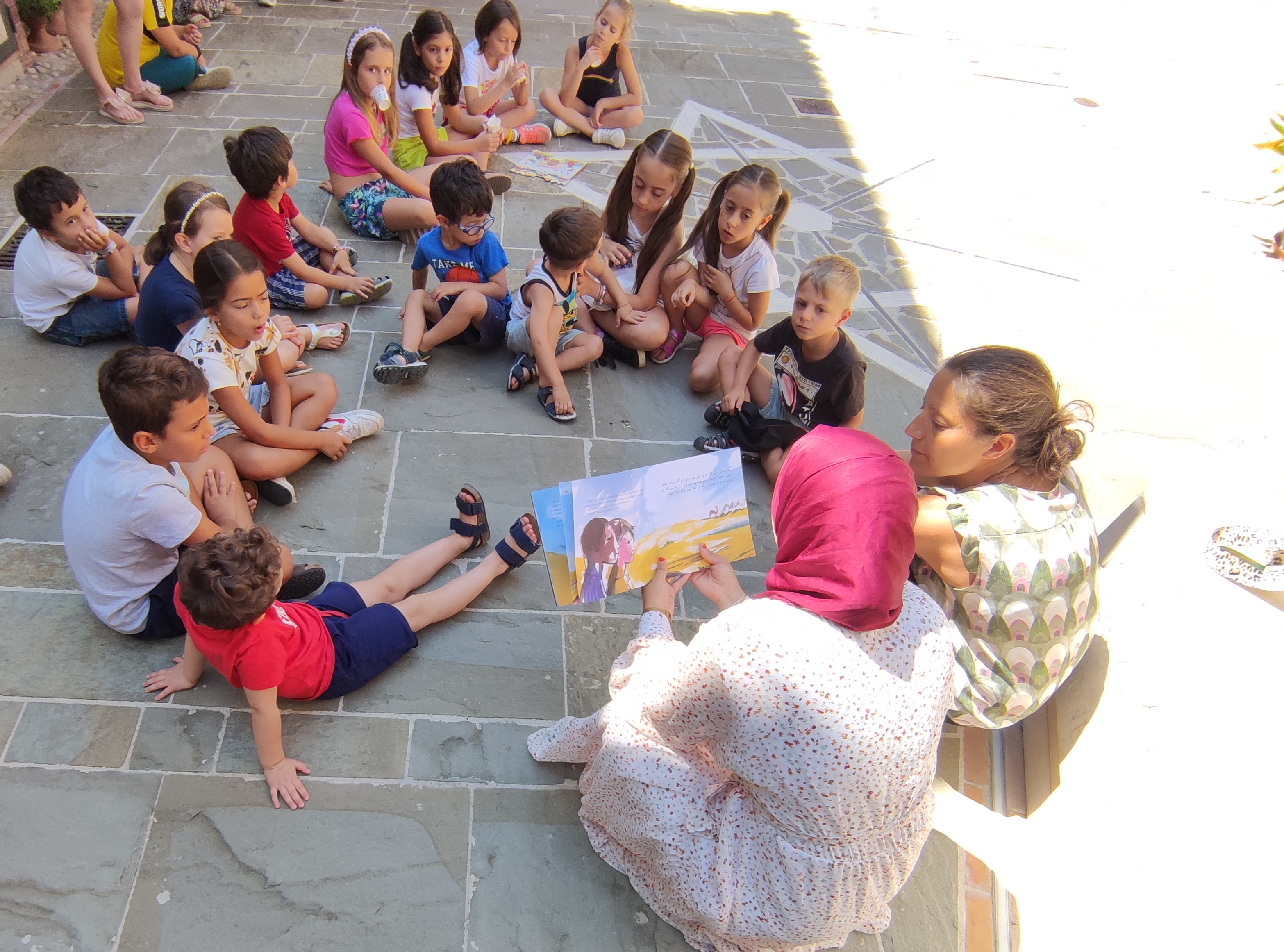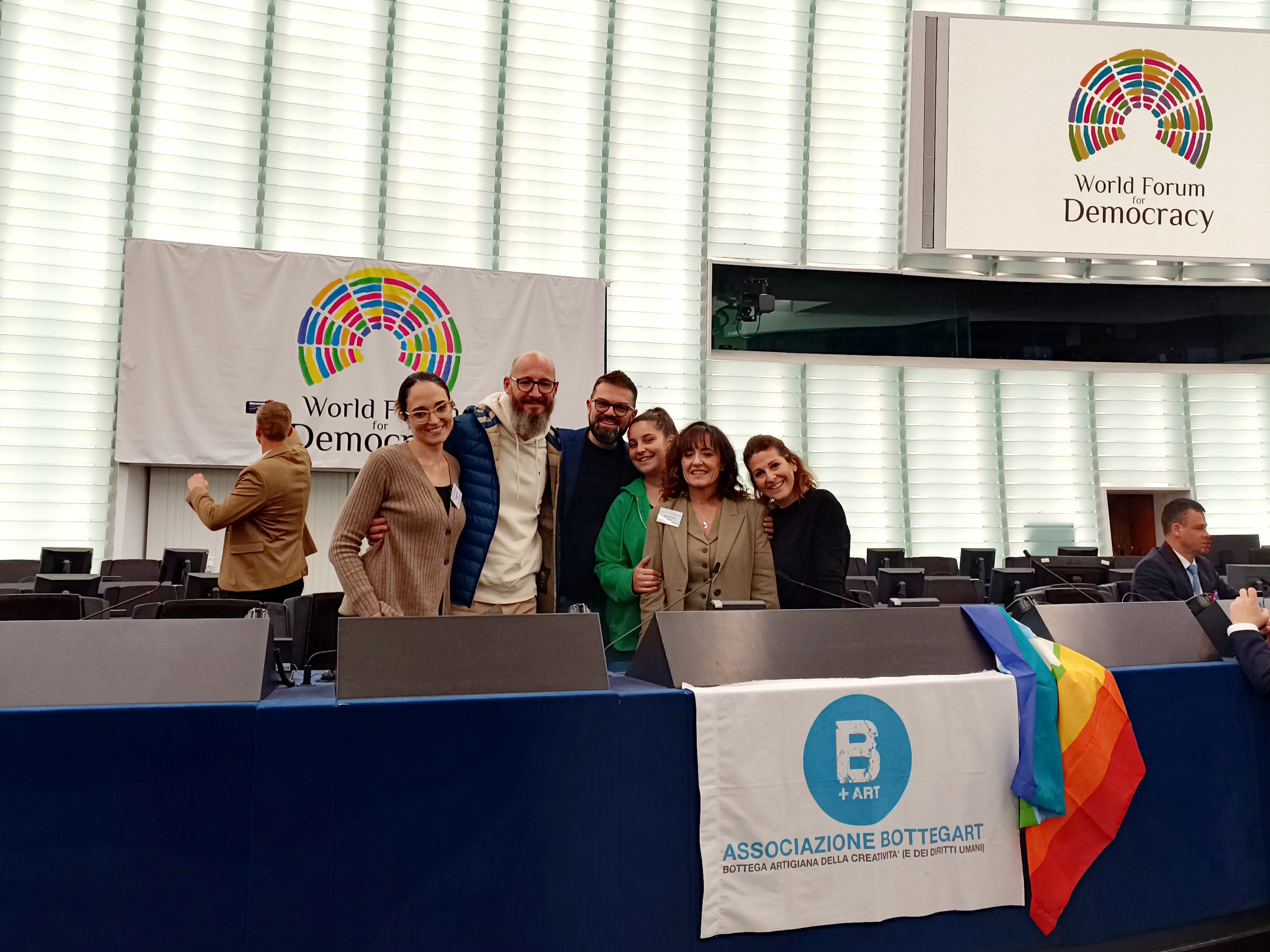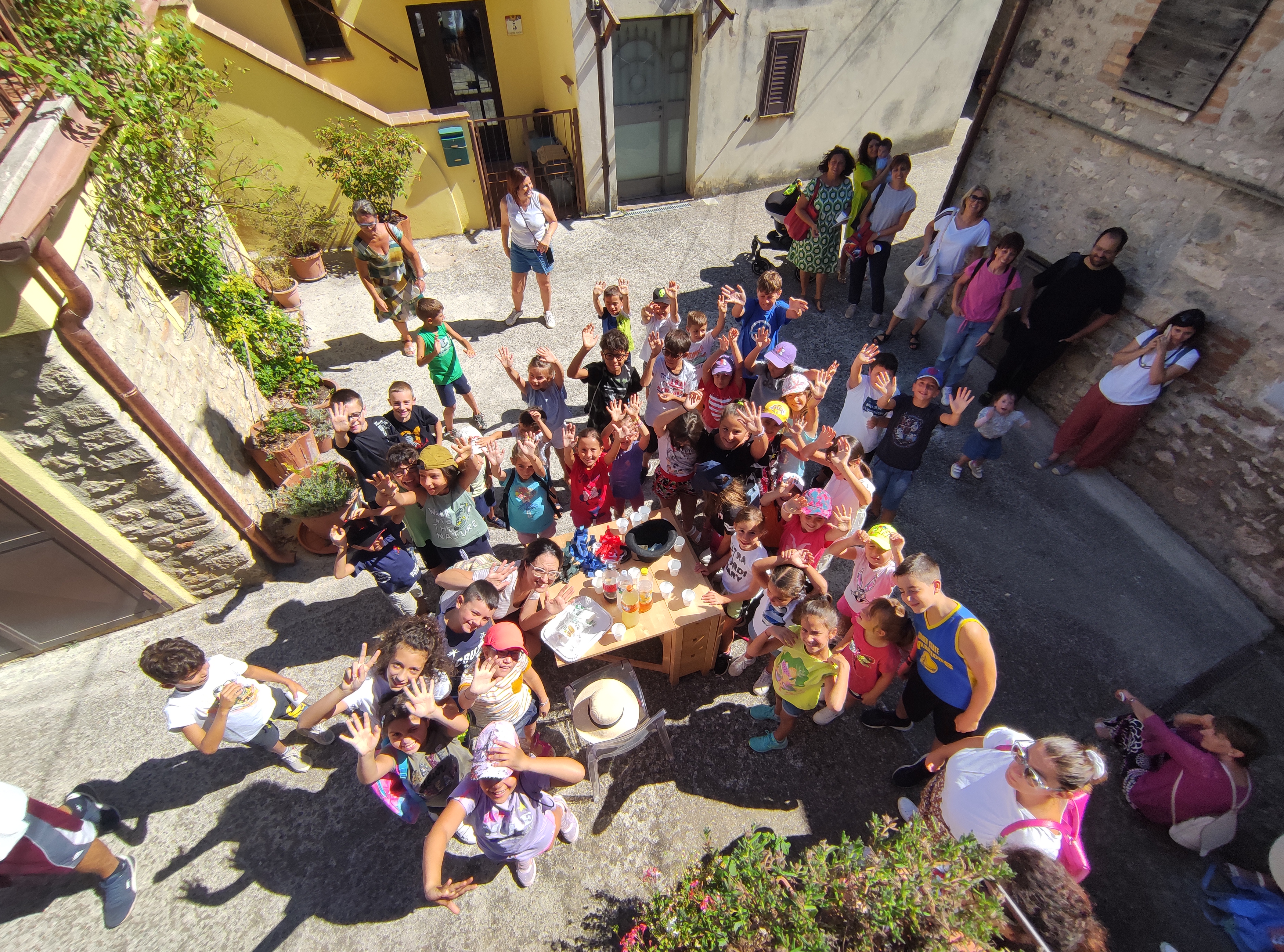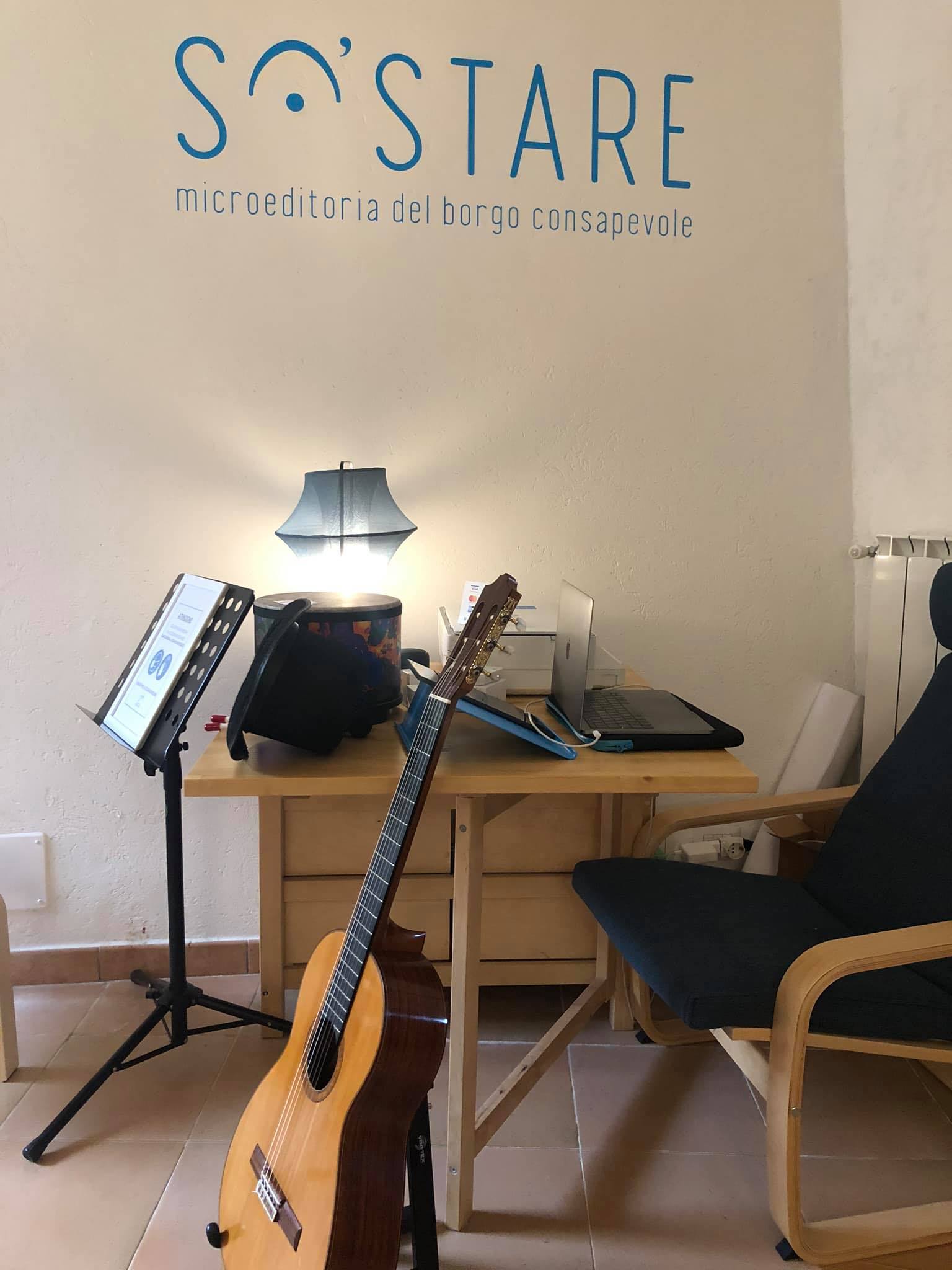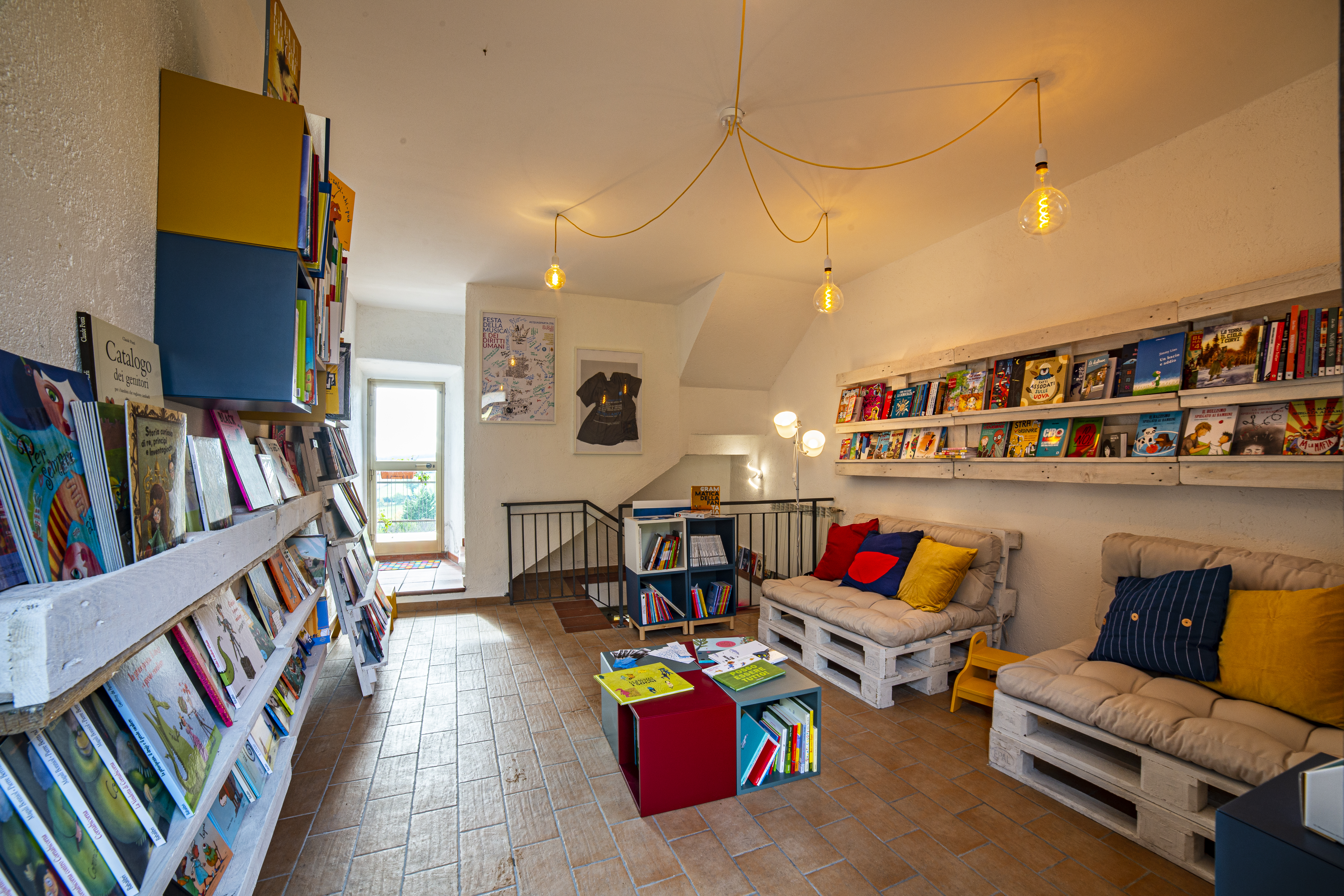Prioritising the places and people that need it the most
So'Stare
So'Stare micro-library of the Conscious Village
In a private house in a village of less than 70 inhabitants, Bottegart has already opened So’Stare, a micro-library mainly aimed at people from 0 to 16 years, to develop social issues related to integration, sharing, the recovery and dissemination of culture, to develop the critical consciousness, and serving as a liaison between the institutes of different towns in the Umbria region for training courses, teaching workshops and presentation of new educational strategies.
Italy
Local
Configni, Acquasparta, Montecastrilli, Avigliano Umbro, Sangemini.
It addresses urban-rural linkages
It refers to a physical transformation of the built environment (hard investment)
Yes
2020-10-23
No
No
No
As an individual partnership with other persons/organisation(s)
In a private house in a village of less than 70 inhabitants, Bottegart has already opened So’Stare, a micro-library mainly aimed at people from 0 to 16 years, to develop social issues related to integration, sharing, the recovery and dissemination of culture, to develop the critical consciousness, and serving as a liaison between the institutes of different towns in the Umbria region for training courses, teaching workshops and presentation of new educational strategies.
suggested and developed within the national and international publishing panorama both in the literary sector and in relation to the methodology for musical propaedeutics.
Another objective is promoting reading among children and young people and supporting the right to education of disadvantaged ones by providing them with school supplies with the proceeds from the sale of micro-library books and with crowdfunding ad-hoc initiatives.
suggested and developed within the national and international publishing panorama both in the literary sector and in relation to the methodology for musical propaedeutics.
Another objective is promoting reading among children and young people and supporting the right to education of disadvantaged ones by providing them with school supplies with the proceeds from the sale of micro-library books and with crowdfunding ad-hoc initiatives.
inclusion
accessibility
affordability
aesthetics
sustainability
Our micro-library project was born with the aim of countering depopulation and creating an accessible and sustainable cultural space in a small town, demonstrating how culture can be an engine of social and economic regeneration.
From an environmental point of view, the micro-library was built with reclaimed materials and sustainable furniture, promoting a circular economy and reducing environmental impact. LED lighting minimises energy consumption, while the choice of natural materials has made the space cosy and low-impact. (reclaimed packaging pallets, eco-cotton cushions, FSC® wood shelving
On a social level, the project fostered inclusion through intergenerational activities, involving children, adults and the elderly in the cultural activities proposed. The micro-library has become a reference point for the community, hosting meetings, workshops and moments of sharing that have strengthened the sense of belonging and enhanced local skills.
Finally, the initiative has created a replicable model, demonstrating that even small interventions can generate significant impacts in terms of sustainability and social cohesion. Our participatory approach and the use of local resources make this project an example of how culture can be instrumental for the sustainable development of areas experiencing depopulation.
From an environmental point of view, the micro-library was built with reclaimed materials and sustainable furniture, promoting a circular economy and reducing environmental impact. LED lighting minimises energy consumption, while the choice of natural materials has made the space cosy and low-impact. (reclaimed packaging pallets, eco-cotton cushions, FSC® wood shelving
On a social level, the project fostered inclusion through intergenerational activities, involving children, adults and the elderly in the cultural activities proposed. The micro-library has become a reference point for the community, hosting meetings, workshops and moments of sharing that have strengthened the sense of belonging and enhanced local skills.
Finally, the initiative has created a replicable model, demonstrating that even small interventions can generate significant impacts in terms of sustainability and social cohesion. Our participatory approach and the use of local resources make this project an example of how culture can be instrumental for the sustainable development of areas experiencing depopulation.
The use of studied shapes, colours and lighting has transformed the space into a welcoming and stimulating environment, where every detail tells a story and invites visual and emotional exploration.
The whole project has been meant for people: the spatial organization, the furniture and lighting have been conceived to encourage opportunities for interactions, reflection and creativity. The micro-library is not only a place for reading or purchasing books, it is a catalyst for cultural and social experiences. Thanks to the events, the laboratories and the intergenerational activities, the project has succeeded in stimulating active participation, enhancing diversity and strengthening the sense of belonging to the community. Our approach is a replicable model for similar contexts. In such an age where sustainability is interwoven with the need for identity and collective wellbeing, this project shows how art and cultural initiatives in general can work together to give new life to spaces and communities. The micro-library, with its ability to transform a place in decline in a small but meaningful cultural hub, is an example of innovation that unites beauty, sustainability and inclusion, inviting others to undertake similar initiatives for social and urban regeneration.
The whole project has been meant for people: the spatial organization, the furniture and lighting have been conceived to encourage opportunities for interactions, reflection and creativity. The micro-library is not only a place for reading or purchasing books, it is a catalyst for cultural and social experiences. Thanks to the events, the laboratories and the intergenerational activities, the project has succeeded in stimulating active participation, enhancing diversity and strengthening the sense of belonging to the community. Our approach is a replicable model for similar contexts. In such an age where sustainability is interwoven with the need for identity and collective wellbeing, this project shows how art and cultural initiatives in general can work together to give new life to spaces and communities. The micro-library, with its ability to transform a place in decline in a small but meaningful cultural hub, is an example of innovation that unites beauty, sustainability and inclusion, inviting others to undertake similar initiatives for social and urban regeneration.
The micro-library was created by designing flexible spaces that could be adapted to various uses and encourage interaction between those attending the proposed activities. The events organised range from art workshops such as music workshops 0-36 months, 3 - 64 years, classical guitar and ensemble music lessons, figurative art workshops as well as cultural exchange meetings, such as book presentations, read aloud days for ages 0-6, creating a dynamic and inclusive environment. The project is therefore not just a physical place, but becomes a model of social innovation that promotes inclusion through art and culture.
The key objectives in terms of inclusion have been:
the participatory process which has actively involved the local community, where every voice has been heard and taken into consideration, allowing to integrate different perspectives and specific needs. This approach promoted the creation of a shared management model, where citizens, associations and institutions work together for the common good.
Since the beginning we have organised community workshops, public meetings and discussion groups that have united local residents, cultural associations and civil society groups. These sessions were meant as co-design laboratories, where the citizens could contribute with their ideas and necessities about the functions and organisation of the library. This collaborative approach has guaranteed a final outcome which is not only innovative, but also responding to the cultural and practical expectations of the community.
In summary, the role of the citizens has evolved from the simple consultation into a real collaboration throughout the entire life cycle of the project. Their involvement was crucial not only to shape a functional and culturally relevant space, but also to create a resilient model of urban regeneration led by the community. This model is exemplary of how the involvement of civil society can lead collective, inclusive and economically sustainable development processes.
In summary, the role of the citizens has evolved from the simple consultation into a real collaboration throughout the entire life cycle of the project. Their involvement was crucial not only to shape a functional and culturally relevant space, but also to create a resilient model of urban regeneration led by the community. This model is exemplary of how the involvement of civil society can lead collective, inclusive and economically sustainable development processes.
The collaboration with the residents, the schools and the municipal bodies has been close. Since the beginning, workshops and participatory laboratories have allowed the ideas, needs and proposals of the community to be heard, in particular for the planning of the library's activities, making it possible to model a space mirroring the identities and aspirations of the community. This direct involvement has guaranteed greater adhesion and sense of belonging to the project. The citizens' participation has ensured that the project would answer the real necessities of the territory, strengthening the social fabric and promoting an authentic and shared urban regeneration.
During the design phase of the library we have integrated several fields of knowledge, thus creating a multidisciplinary approach that has enriched both the design and realisation phases.
These disciplines have guided the realisation of the space as welcoming, functional and environmentally sustainable. The choice of eco-friendly and reclaimed materials has helped reducing the environmental impact and giving value to the local assets, integrating the project in the context of urban regeneration, taking into consideration the necessities of the territory and making the micro-library a catalyst for the rebirth and social cohesion of an area at risk of depopulation.
The humanistic disciplines and social studies have offered an important perspective to understand the dynamics of the community. The multidisciplinary interaction has encouraged the experimentation of new methods and instruments, leading to an urban regeneration model that not only meets the immediate needs but also lays the foundations for projects of future development.
These disciplines have guided the realisation of the space as welcoming, functional and environmentally sustainable. The choice of eco-friendly and reclaimed materials has helped reducing the environmental impact and giving value to the local assets, integrating the project in the context of urban regeneration, taking into consideration the necessities of the territory and making the micro-library a catalyst for the rebirth and social cohesion of an area at risk of depopulation.
The humanistic disciplines and social studies have offered an important perspective to understand the dynamics of the community. The multidisciplinary interaction has encouraged the experimentation of new methods and instruments, leading to an urban regeneration model that not only meets the immediate needs but also lays the foundations for projects of future development.
Unlike mainstream actions which often focus on standardised interventions, our approach integrates synergically sustainability, inclusion and active participation, thus creating a model of transformative intervention for the community. This approach not only reduces the environmental impact but it also turns the library into a bridge between tradition and modernity, offering an aesthetic and functioning answer to the local necessities.
Citizens, schools, associations and local institutions have been involved in the development of the project, demonstrating how synergy between different kinds of participation can generate a deep impact, transforming a simple cultural space into a catalyst for social change and the enhancement of the territory.
Citizens, schools, associations and local institutions have been involved in the development of the project, demonstrating how synergy between different kinds of participation can generate a deep impact, transforming a simple cultural space into a catalyst for social change and the enhancement of the territory.
The methodology adopted for the project is based on a participatory, multidisciplinary and iterative approach that has allowed to integrate the necessities of the territory with the technical and cultural competences of several participants. The project has been carried out gradually, with continuous monitoring and feedback from the community. Such an iterative approach has allowed real time alterations and optimisation, ensuring a dynamic answer to emergent needs.
The project model of the micro-library offers an integrated package of innovative methodologies and processes that can be adapted to every European rural context lacking intercultural spaces used as meeting, didactic, formative and leisure centres. By contributing to the creation of spaces for urban regeneration, cultural inclusion and environmental sustainability, the micro-library is a virtuous and replicable exemple.
The project shows that, starting from a local solution for the urban regeneration and culture promotion, it is possible to contribute to global challenges such as environmental sustainability, the urban crisis and social exclusion.
Redevelopment of the urban centre of Configni; realisation of intergenerational events; annual support to needy students through scholarship; didactic, formative and leisure intercultural events; participation to the World Forum for Democracy 2023 “Lab 9- Social entrepreneurship: is there an alternative to the pursuit of profit?” where the So’Stare project stood out among the experiences that consider the intercultural and intergenerational dialogue as essential foundation for the development of both social and financial economy; longstanding collaboration with the national associations Libera and Amnesty International, based on shared beliefs and commitment.

